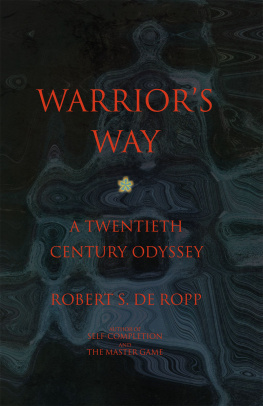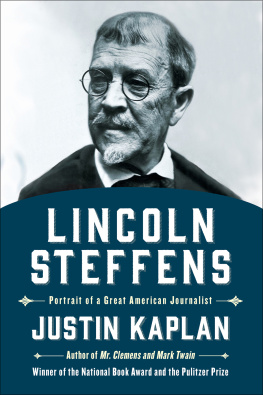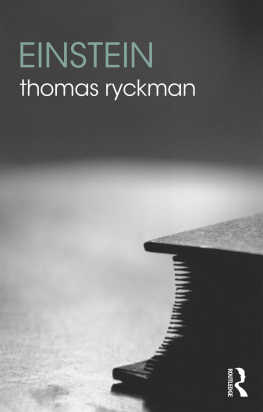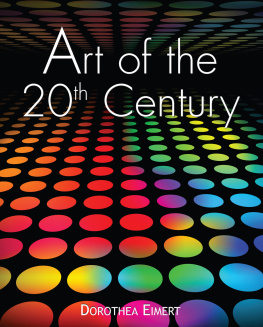THE 100
GREATEST AMERICANS
OF THE 20TH CENTURY
ALSO BY PETER DREIER
Jewish Radicalism: A Selected Anthology
(New York: Grove Press, 1973), coeditor with Jack Nusan Porter
The Next Los Angeles:
The Struggle for a Livable City, 2nd ed.
(Berkeley: University of California Press, 2006),
coauthor with Regina Freer, Bob Gottlieb, and Mark Vallianatos
Place Matters: Metropolitics for the 21st Century,
2nd ed. (Lawrence: University Press of Kansas, 2004),
coauthor with John Mollenkopf and Todd Swanstrom
Regions That Work:
How Cities and Suburbs Can Grow Together
(Minneapolis: University of Minnesota Press, 2000),
coauthor with Manuel Pastor, Eugene Grigsby, and Marta Lopez-Garza
Up Against the Sprawl:
Public Policy and the Making of Southern California
(Minneapolis: University of Minnesota Press, 2004),
coeditor with Jennifer Wolch and Manuel Pastor
The 100
GREATEST
AMERICANS
of the 20TH
CENTURY

A SOCIAL JUSTICE
HALL of FAME
PETER DREIER

Copyright 2012 by Peter Dreier
Published by Nation Books, A Member of the Perseus Books Group
116 East 16th Street, 8th Floor
New York, NY 10003
Nation Books is a copublishing venture of the
Nation Institute and the Perseus Books Group.
All rights reserved. No part of this book may be reproduced in any manner whatsoever without written permission except in the case of brief quotations embodied in critical articles and reviews. For information, address the Perseus Books Group, 387 Park Avenue South, New York, NY 10016-8810.
Books published by Nation Books are available at special discounts for bulk purchases in the United States by corporations, institutions, and other organizations. For more information, please contact the Special Markets Department at the Perseus Books Group, 2300 Chestnut Street, Suite 200, Philadelphia, PA 19103, or call (800) 810-4145, extension 5000, or e-mail .
Designed by Trish Wilkinson
Set in 10.5 point Adobe Garamond Pro
Library of Congress Cataloging-in-Publication Data
Dreier, Peter, 1948
The 100 greatest Americans of the 20th century : a social justice hall of fame / Peter Dreier.
p. cm.
Includes bibliographical reference.
ISBN 978-1-56858-694-6 (e-book) 1. Social reformersUnited StatesBiography. 2. Political activistsUnited StatesBiography. 3. Social changeUnited StatesHistory20th century. 4. Social justiceUnited StatesHistory20th century. 5. United StatesSocial conditions20th century. 6. United StatesHistory20th centuryBiography. I. Title. II. Title: One hundred greatest Americans of the twentieth century.
E747.D74 2012
920.073dc23
10 9 8 7 6 5 4 3 2 1
To my daughters, Amelia and Sarah
Contents
THIS BOOK celebrates the achievements of the movements that have made America a more humane country by profiling their key leadersthe 100 greatest Americans of the 20th century.
Over many years, I have been privileged to know scholars, organizers, activists, journalists, and social critics who have helped me understand the role of progressive ideas and movements in shaping our nations history and culture. None was more important than Michael Harrington, who inspired and mentored me. I have also learned a great deal from my friends Dick Flacks, David Moberg, John Atlas, Jan Breidenbach, Harold Meyerson, Frances Fox Piven, Nelson Lichtenstein, and Maurice Isserman.
Researching and writing this book was a great deal of fun, in large part because I was constantly in contact with interesting people who helped me at every stage. The idea for the book was hatched after The Nation magazine published my article The Fifty Most Influential Progressives of the Twentieth Century, as its October 4, 2010, cover story. The article triggered an avalanche of letters and e-mails, praising it, attacking it for leaving out certain people, or criticizing it for including others. The article did what I had hoped it would do: generate interest in and debate about the people I listed and the movements they represented. Thanks to Katrina Vanden Heuvel, Richard Kim, and Peter Rothberg at The Nation for publishing and giving shape to the original article, and to Katrina for encouraging me to expand it into a book.
At Nation Books, Carl Bromley and Marissa Coln-Margolies demonstrated consistent support and enthusiasm for this project. Their editorial skills guided me at every stage of the research and writing. The Nations Frank Reynolds tracked down all the photographs used in the book.
I reached out to many historians, biographers, journalists, sociologists, political scientists, and others for help in selecting, researching, and writing about the 100 people included in the book. Lucy Knight, Dick Flacks, Ron Cohen, Donald Cohen, John Atlas, Harold Meyerson, Steve Greenhouse, and Nelson Lichtenstein made suggestions about whom to include or leave out. They also made valuable comments on multiple chapters of the book.
Jamie Angell, Chris Myers Asch, Steve Bingham, Jeff Blum, Eileen Boris, Clayborne Carson, Ellen Cassedy, Sue Chinn, Charles Cobb, Norm Cohen, Julie York Coppens, Ken Dingledine, Denis Dison, Kathleen Dolan, Bill Domhoff, Rebecca Edwards, Steve Fraser, Josh Freeman, Herb Gans, Bob Gottlieb, Raymond Gregory, Thomas Hauser, Michael Honey, Maurice Isserman, Madeline Janis, Chana Kai Lee, Mark Levinson, Deborah Martinson, Joe McCartin, John McDonough, S. M. Miller, JoAnn Mort, Philip Nell, Jim Newton, Beverly Palmer, Richard Parker, Miriam Pawel, Nolan Porterfield, Bruce Raynor, JoAnn Robinson, Mark Rogovin, Frank Roosevelt, Richard Rothstein, Jodi Rudoren, Michael Sell, Helen Selsdon, Kathryn Sklar, Daniel Soyer, Rick Valelly, Abbie Van Nostrand, Paul von Blum, Jim Vrabel, Robin Walker, Susan Ware, Howard Winant, and Goetz Wolff supplied important information or reviewed specific chapters that helped me improve the book. Beth Baker, Doug Hess, and Guido Girgenti provided indispensible research assistance.
My students and colleagues at Occidental College have provided a wonderful environment for teaching, writing, and political engagement. In particular, I would like to thank Sylvia Chico, Bob Gottlieb, and Martha Matsuoka.
My wife, Terry Meng, and our daughters, Amelia and Sarah, understood how passionate I was about this project and cut me a lot of slack during the year and a half I spent researching and writing the book. I appreciate their love, support, and curiosity.
THROUGHOUT THE 20th century, American pioneers fought to make the United States a more humane and inclusive country. They called for womens suffrage, laws protecting the environment and consumers, an end to lynching, the right of workers to form unions, a progressive income tax, a federal minimum wage, old-age insurance, the eight-hour workday, and government-subsidized health care and housing. When these ideas were first advanced, their pioneering advocates were considered impractical idealists, utopian dreamers, or dangerous socialists. Now we take these ideas for granted. The radical ideas of one generation have become the common sense of the next.








